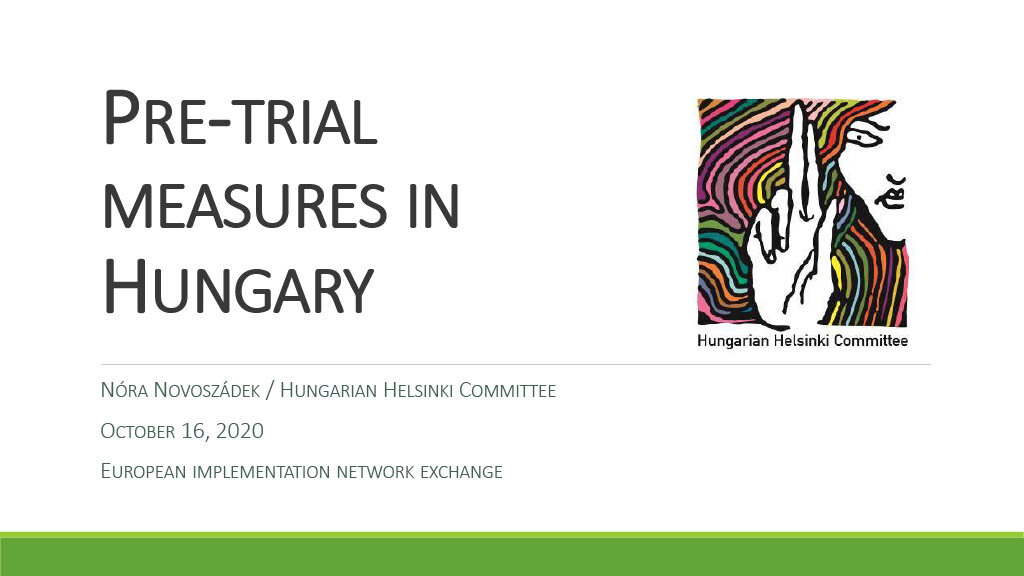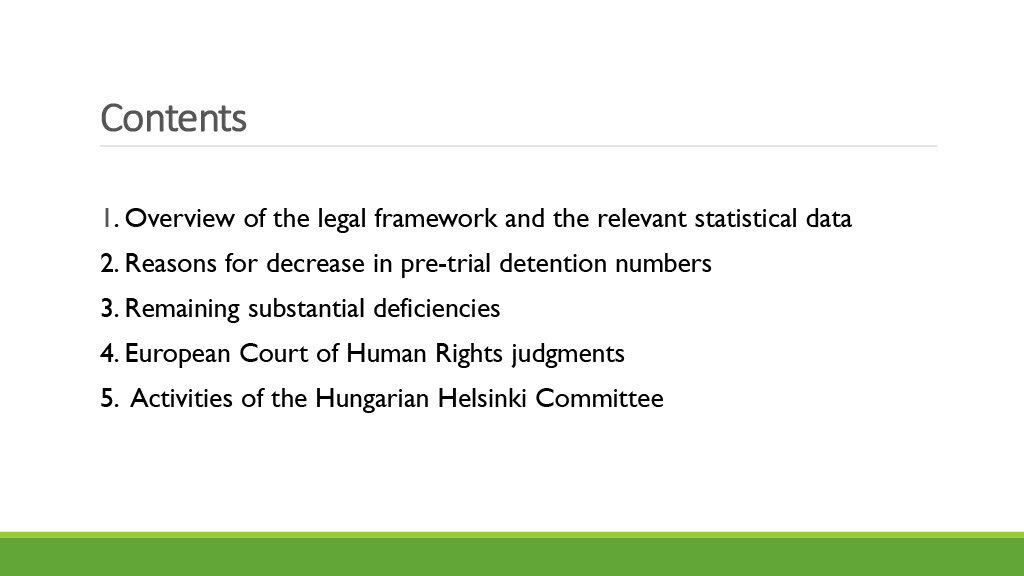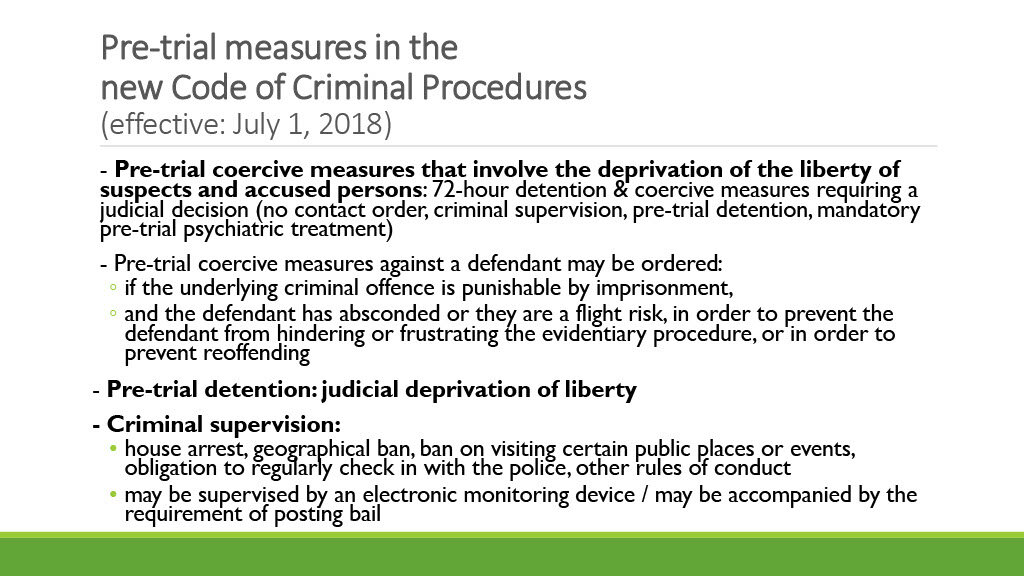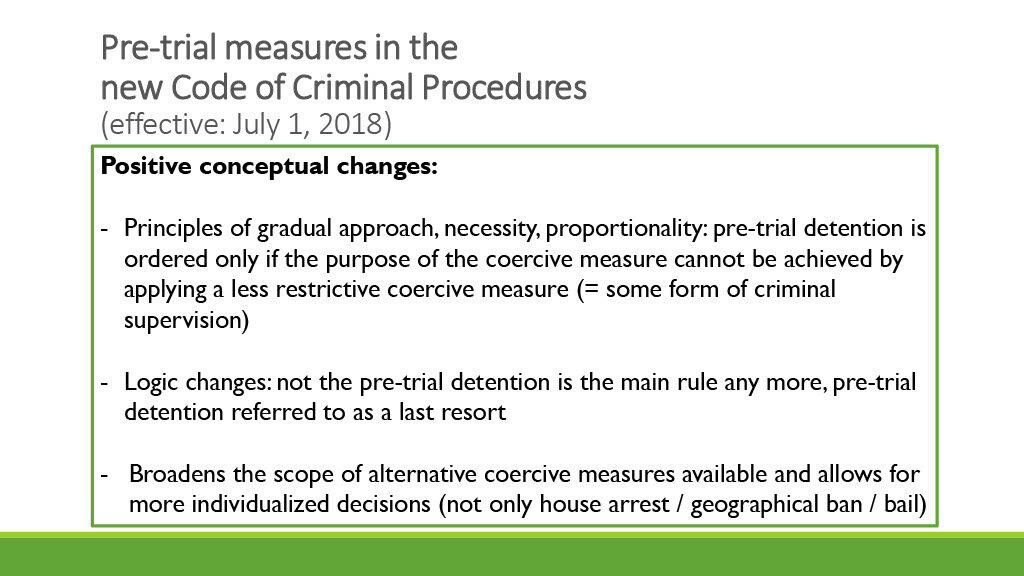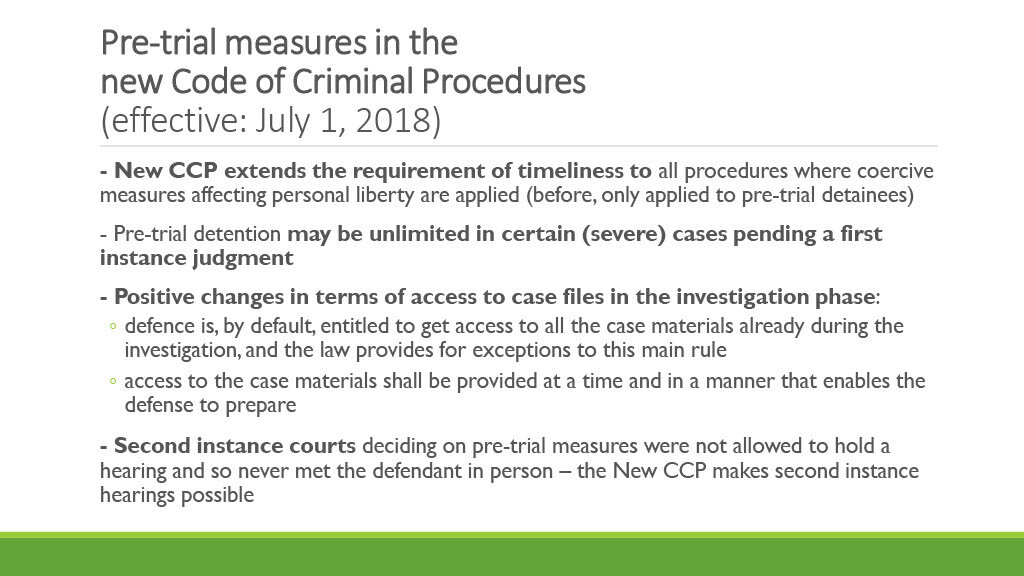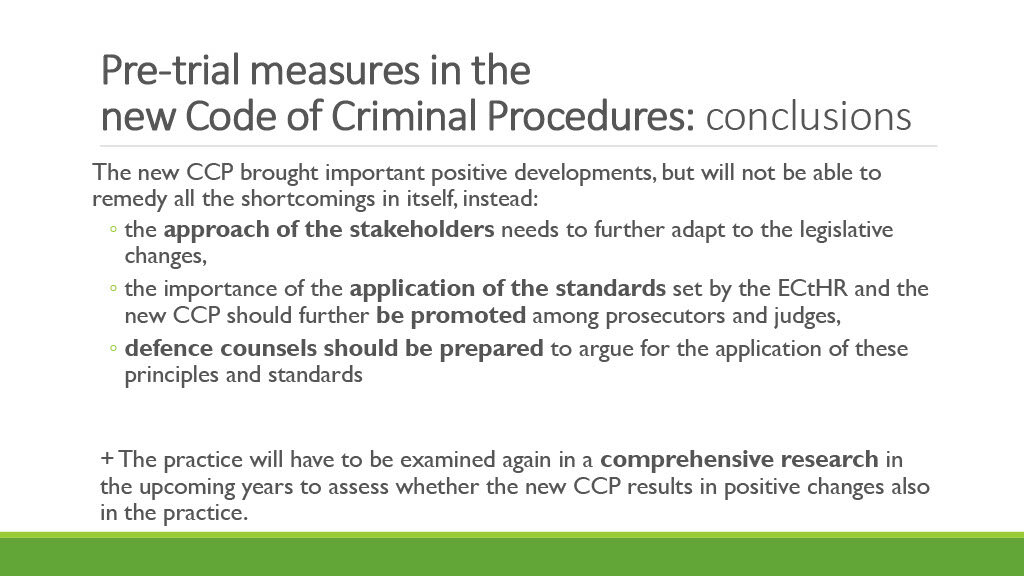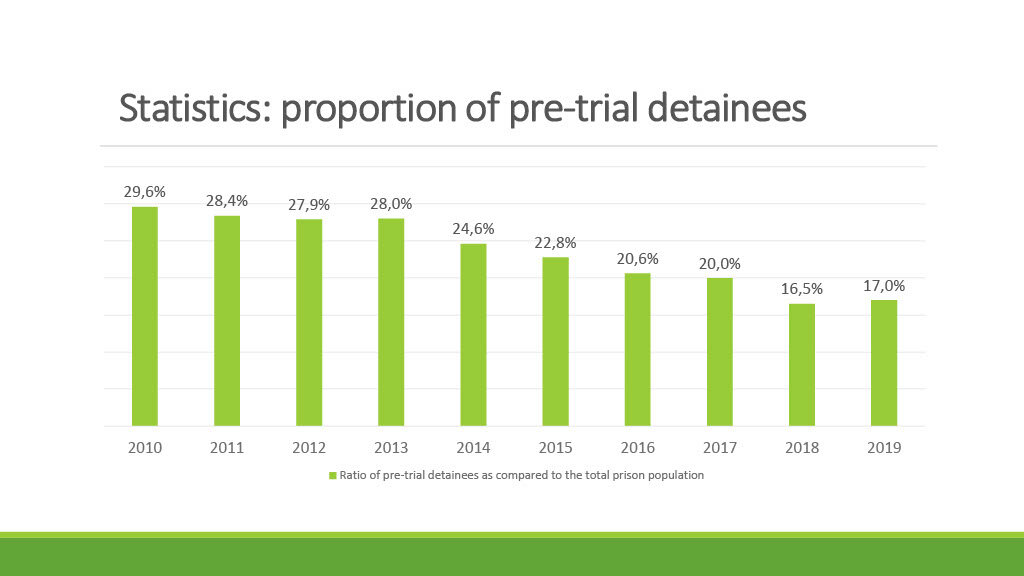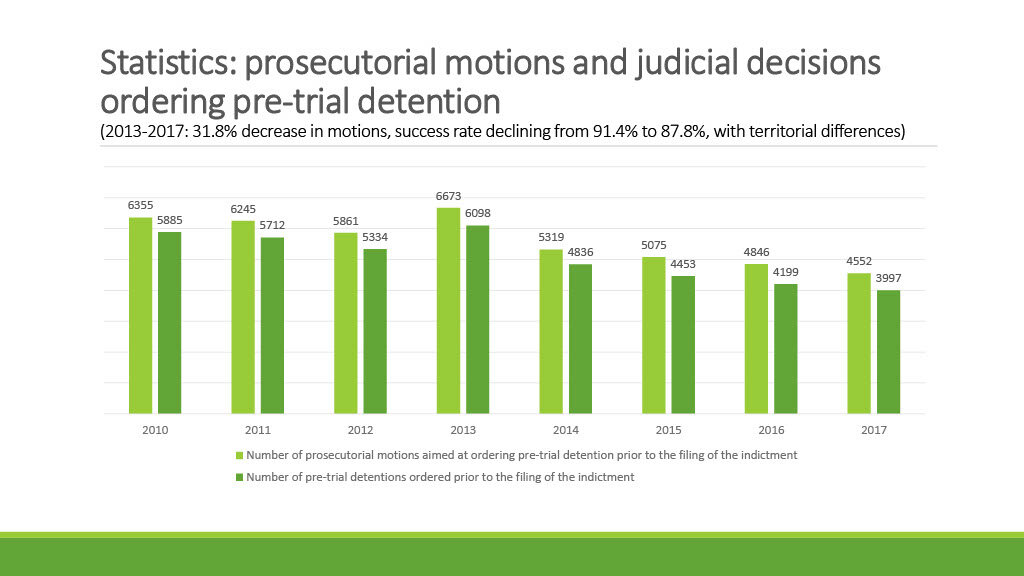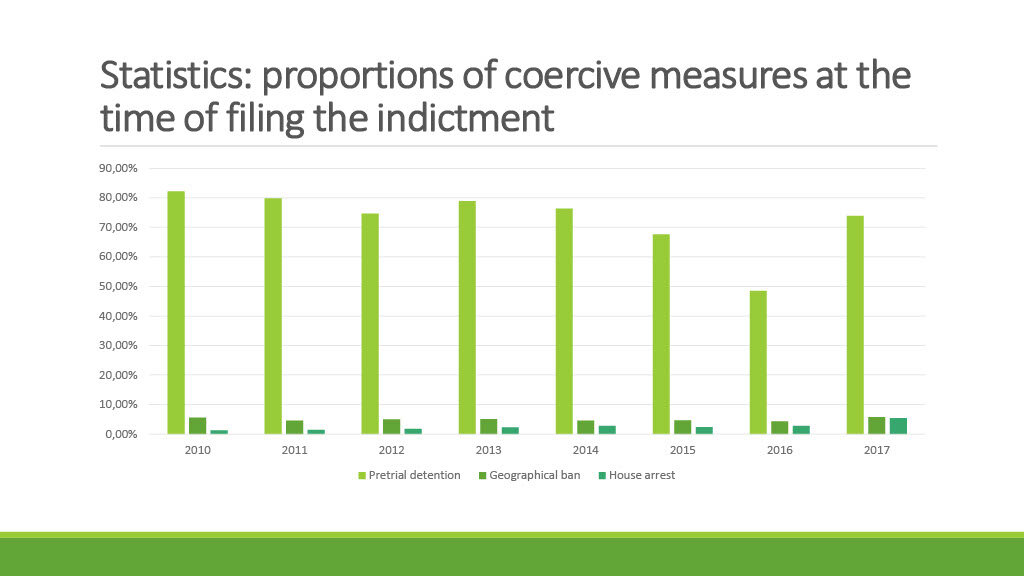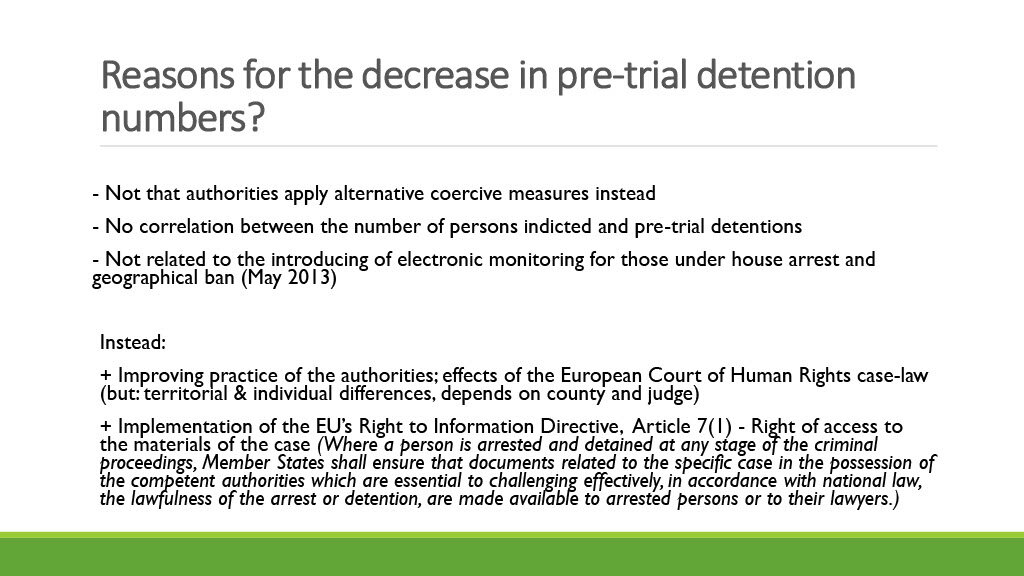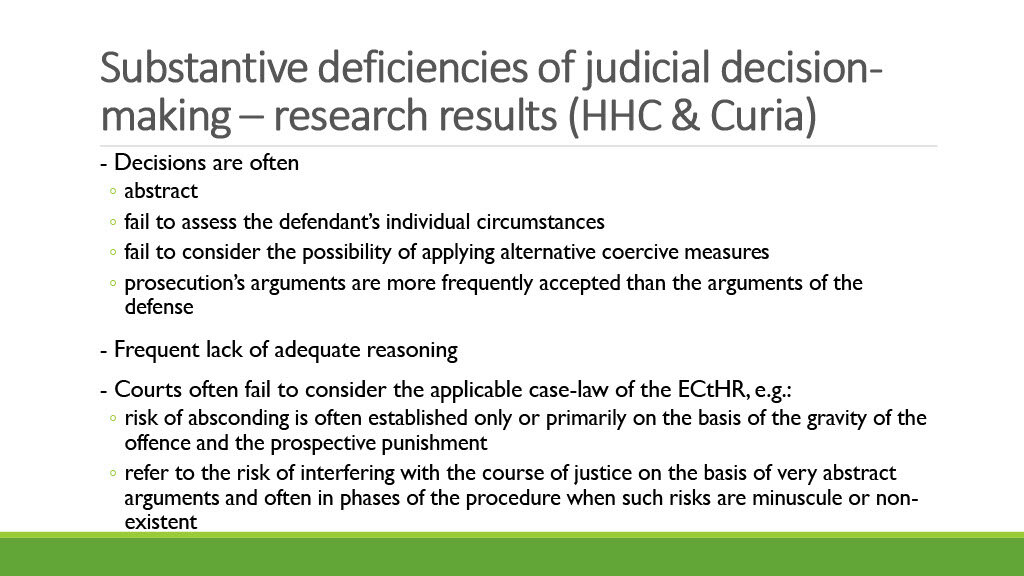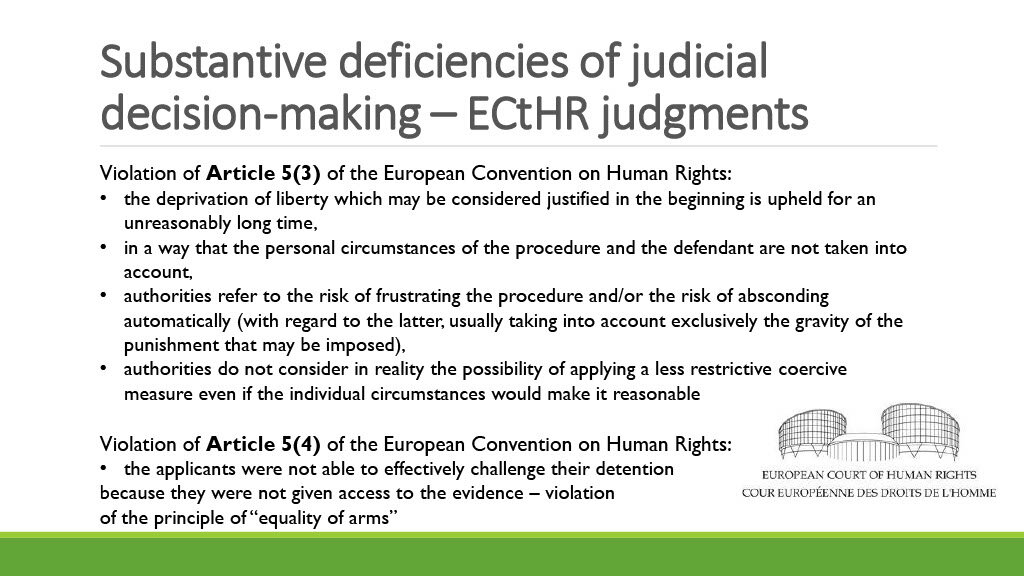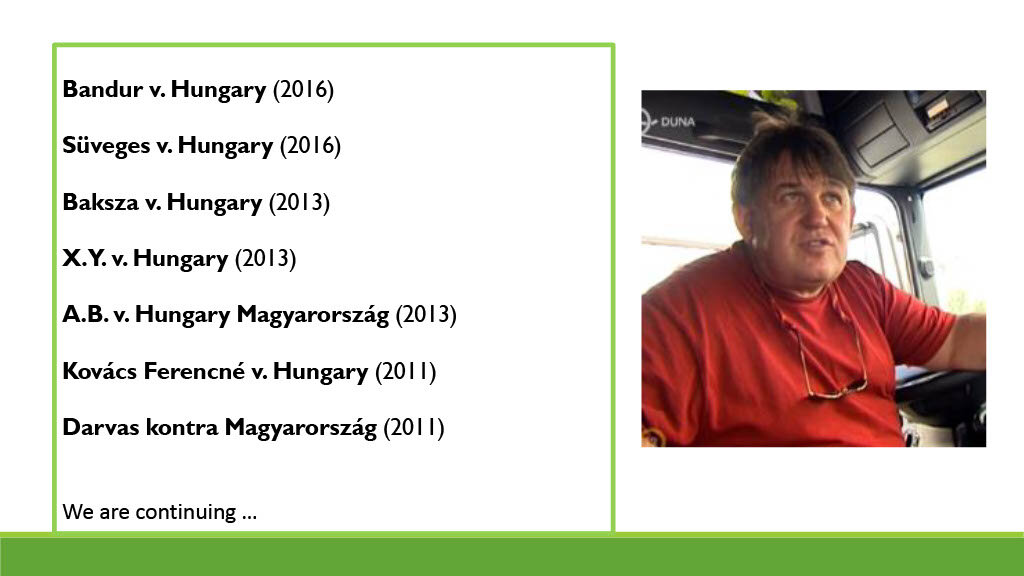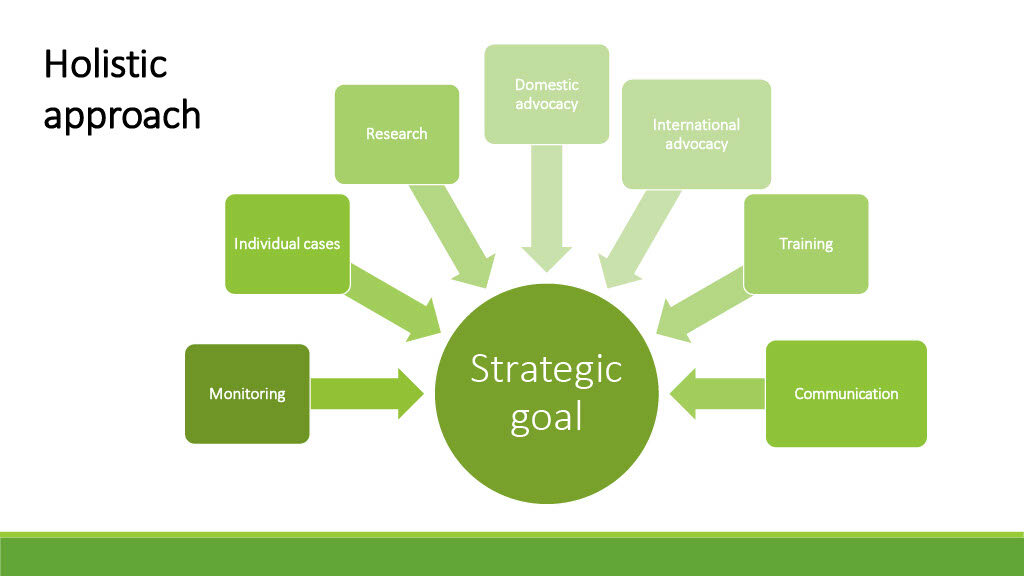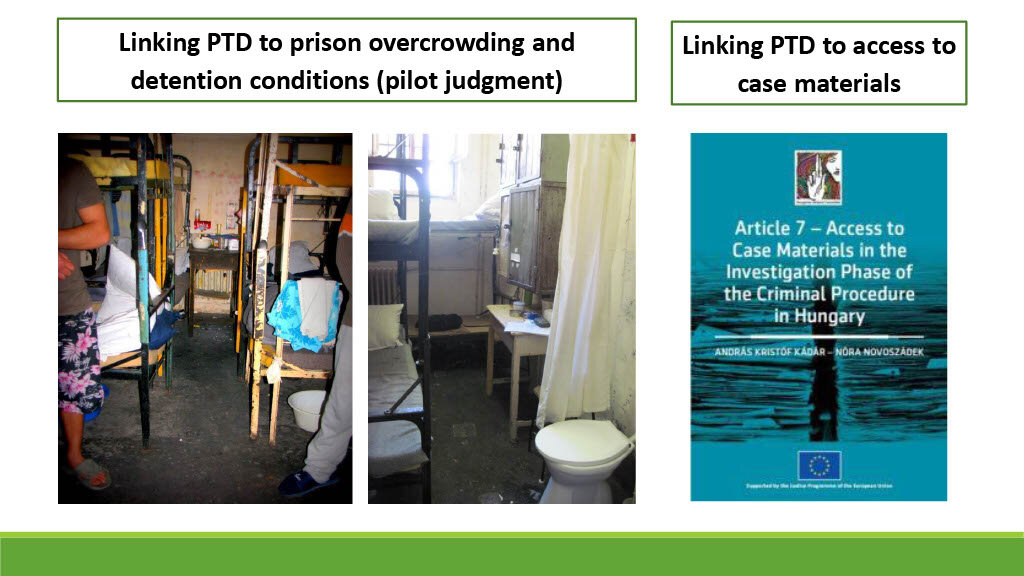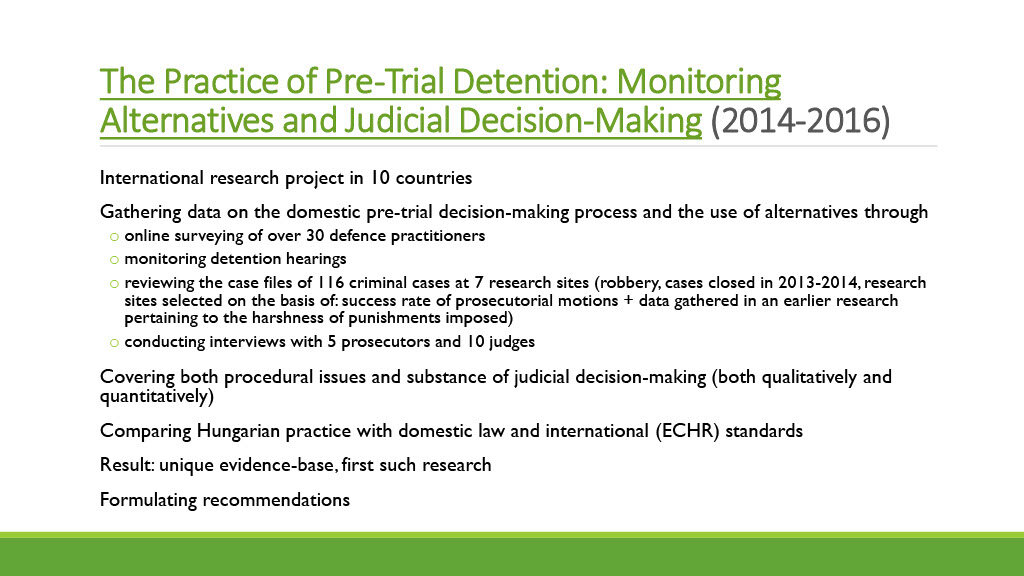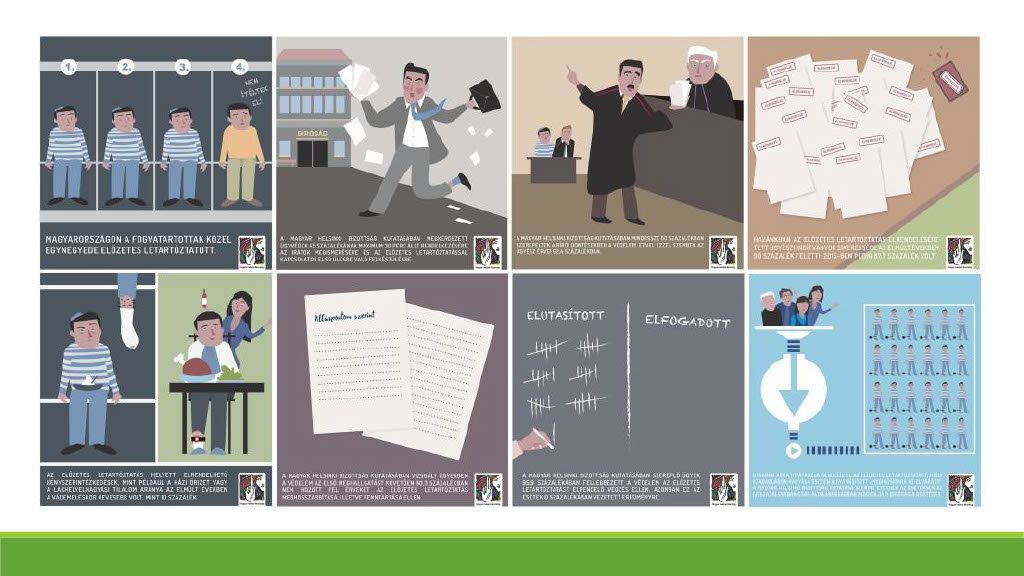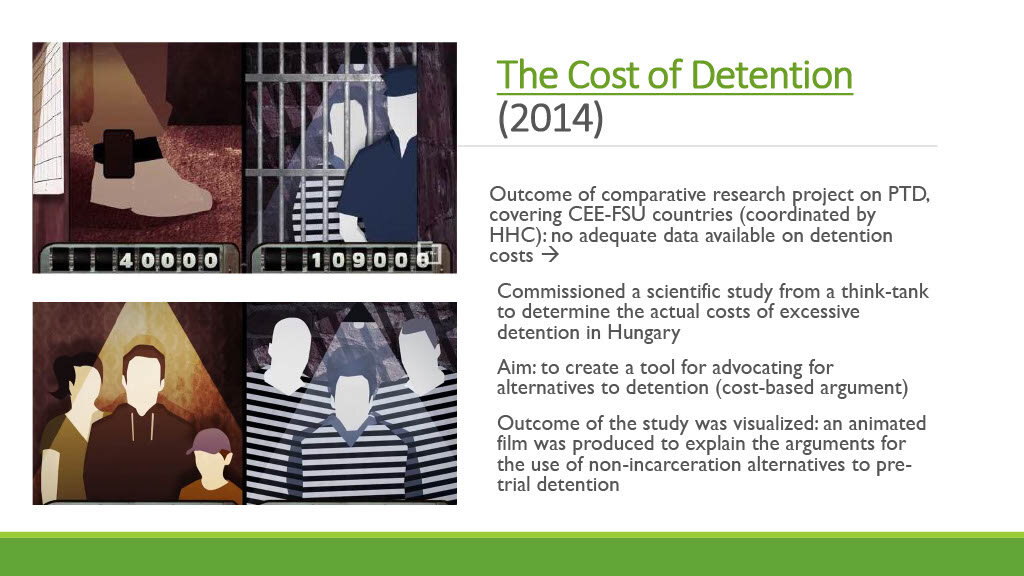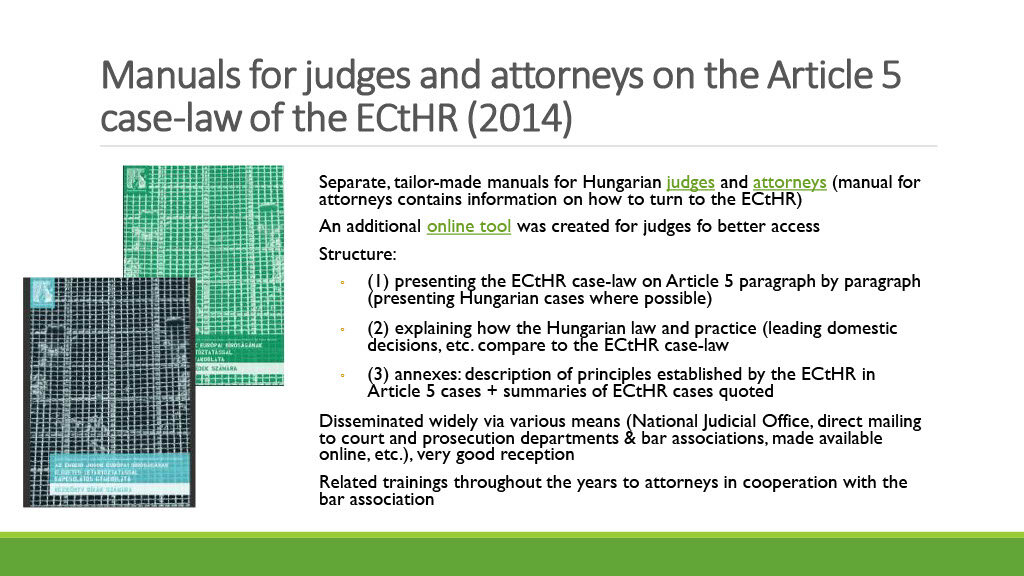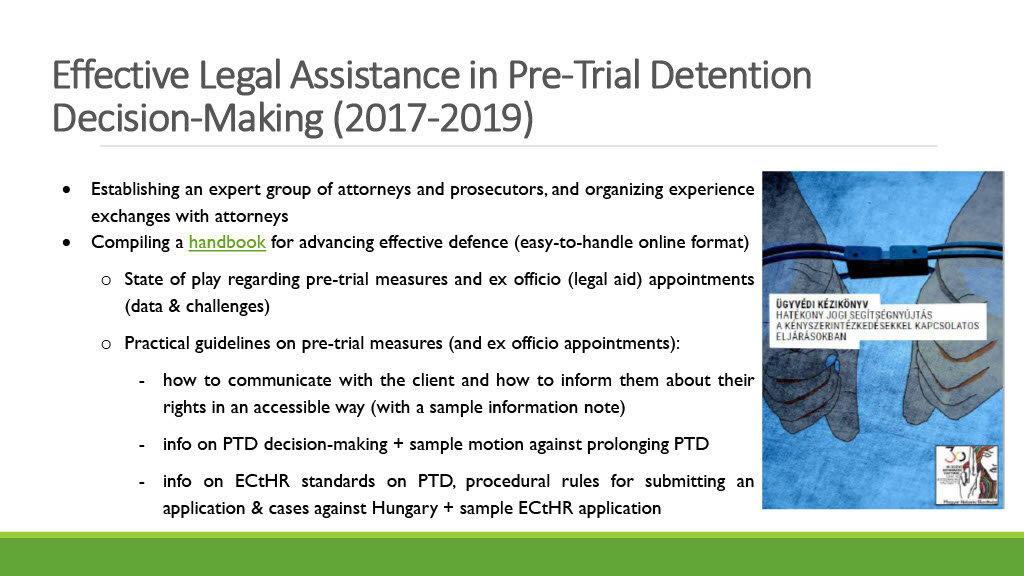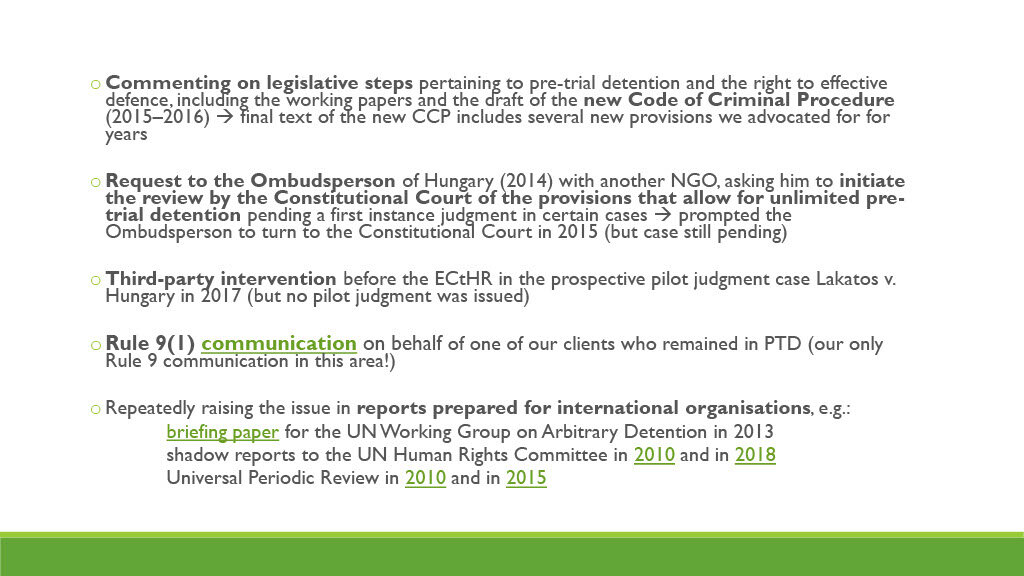Network Exchange: Sharing Implementation Success on Pre-Trial Detention
/Sharing implementation success stories in one country can aid in developing strategies in another. EIN seeks to establish possible connections through our network of members across Europe, to facilitate exchanges between organizations in different countries who work towards implementing the European Court of Human Rights (ECtHR) judgments.
An example of this exchange was a roundtable discussion between organisations in Moldova and Hungary concerning pre-trial detention, held on Friday 16th October 2020. The Hungarian Helsinki Committee has had positive results in their advocacy for reducing unwarranted pre-trial detention in Hungary, following a series of ECtHR judgments under the X.Y. v. Hungary group. This implementation success was a result of the Hungarian Helsinki Committee contributing to legislation and working to ensure its implementation through a wide variety of activities. Some of their most notable impacts were achieved through the creation of easy to use resources on the relevant ECHR standards, which they disseminated widely to lawyers, prosecutors and judges. These have been used routinely by these actors, helping to ensure that the relevant standards are being raised and discussed in Hungarian courts.
In Moldova, a similar problem regarding pre-trial detention has been highlighted through the ECtHR judgments in the Sarban group – particularly regarding the Courts’ failure to give relevant and sufficient reasons when approving the applicants' pre-trial detention and/or refusing the applicants’ habeas corpus requests. A series of Moldovan NGOs take an interest on this issue, including:
Legal Resources Centre from Moldova
These groups all participated in the exchange organised on 16th October 2020. The Hungarian Helsinki Committee shared their best practices and lessons learnt during the implementation process on unwarranted pre-trial detention. Positive feedback from the session indicates that this will have an impact on the strategies used in Moldova on the same issue.
See latest Legal Resources Centre from Moldova submission to the CoE Committee of Ministers
We hope to organise more collaborations on sharing implementation successes with our partners and members in the future.
For more information about the Network and EIN Members:
https://www.einnetwork.org/implementation-activities
Resources included in the presentation:
(2) The Cost of Detention (2014)
(3) Separate, tailor-made manuals for Hungarian judges and attorneys (manual for attorneys contains information on how to turn to the ECtHR)
(4) An additional online tool was created for judges for better access
(5) Compiling a handbook for advancing effective defence (easy-to-handle online format)
(6) Rule9(1) communication on behalf of one of our clients who remained in PTD (our only Rule9 communication in this area!)
(7) Repeatedly raising the issue in reports prepared for international organisations, e.g.:
briefing paper for the UN Working Group on Arbitrary Detention in 2013
shadow reports to the UN Human Rights Committee in 2010 and in 2018

